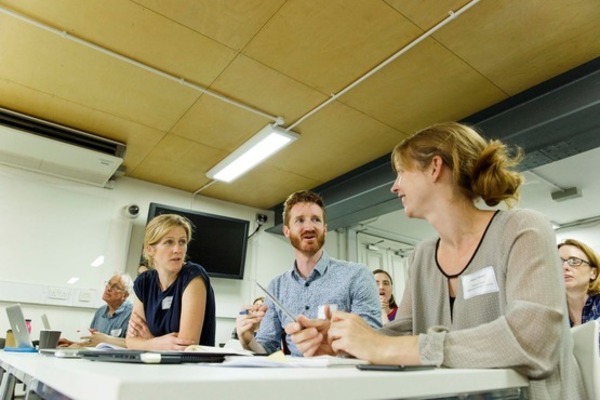There are a wide range of careers involving science writing. The boundaries between different roles are blurred and people often move from one to another and back and forth. And a ‘writer’ may work across multiple formats such as audio, video and social media, as well as more typical text-based news and feature articles.
Science journalists or reporters
These typically work for newspapers, magazines, TV and radio companies, podcasts, websites, and other media outlets. Some have a specialty or ‘beat’ such as health, technology, physics or chemistry.
Journalists write short news stories or scripts that take hours or days to write, longer features, which can take several days, weeks or months. Book authors may spend many months – sometimes years – researching a topic in far greater depth.
Journalists move onto new stories quickly and are always learning. It’s exciting to be writing about the frontiers of research and to know that many people will read or watch your work, and perhaps be influenced by it. On the downside, journalism can be stressful. Journalists work to constant, unmovable deadlines. They can have as little as an hour to get to grips with complex subjects about which they may know very little, and then write a story picking out the need-to-know messages, understandable by a general audience. Many journalists also complain of increasing workloads as the onset of digital media has brought pressure to produce 24/7 online news, podcasts, blogs, social media posts and other content.
Reporters can be employed full-time by a media organisation (‘staff reporters’) though such positions are relatively few and highly competitive. Freelancers, by contrast, are self-employed, running their own business of writing or producing content for many outlets. Freelancers have more autonomy to pursue stories that interest them and to manage their own time, but they often have less financial security and may have to work harder to get a commission from an editor.
Editors oversee the process: they typically commission stories from reporters. They might commission stories they have identified, or ones that reporters have ‘pitched’ to them. Editing a story can involve anything from tweaking a few words to rewriting most of the piece.
Sub-editors check stories for accuracy, grammar and clarity, including matching a publication’s ‘house style’, after editing and before publication.
Most of the major media outlets (newspapers, magazines, news websites, and TV and radio broadcasters) employ specialist science, health, technology or environment reporters including the BBC, ITN (ITV and Channel 4), Sky News, CNN, The Times, The Telegraph, The Guardian, The Sun, The Mirror, Buzzfeed, The Economist and Time. There are also general public-facing science magazines including New Scientist, WIRED, Scientific American, Science Focus, and National Geographic. Additionally, many specialist journals and magazines serve working scientists, engineers, or medical professionals such as Science, Nature, Chemistry World, IEEE Spectrum, Physics World, The Lancet, and the BMJ (British Medical Journal). For more information, take a look at the ABSW’s State of Science Writing report.
Communications and media/press officers
A broad range of science writers work for universities, research institutes, museums, government agencies, funding agencies, charities and other organisations with an interest in science. The aim is to increase the organisation’s profile and communicate its findings widely for interested members of the public.
These writers typically produce written and other media content about the science and scientists being supported by their organisation. A writer in the university’s communications office might produce an article about the work for the institution’s website, a press release to alert the media, a podcast about the latest research and schemes being run, and a video explainer about a scientist’s work.
There are a lot of different job titles such as science writers, science communicators, press officers, or public information officers. These positions are usually permanent and full or part-time and have the advantage of being more secure than freelancing and, in comparison to journalism, relatively well-paid.
Others
The Internet has also opened up publishing and broadcasting to anyone, creating a thriving industry of science websites and podcasts. Creators range from journalists working at the publications mentioned above, to scientists themselves, enthusiasts and science-related institutions and organisations like Cancer Research UK, Greenpeace, UKRI and Wellcome Trust.
Guide navigation
Back to the start
What is science writing?
What do science writers do? (You are here)
How do I become a science writer?
Getting into specific parts of the media
General tips for getting started
Further reading
Courses in science communications
Other organisations similar to ABSW
Credits






